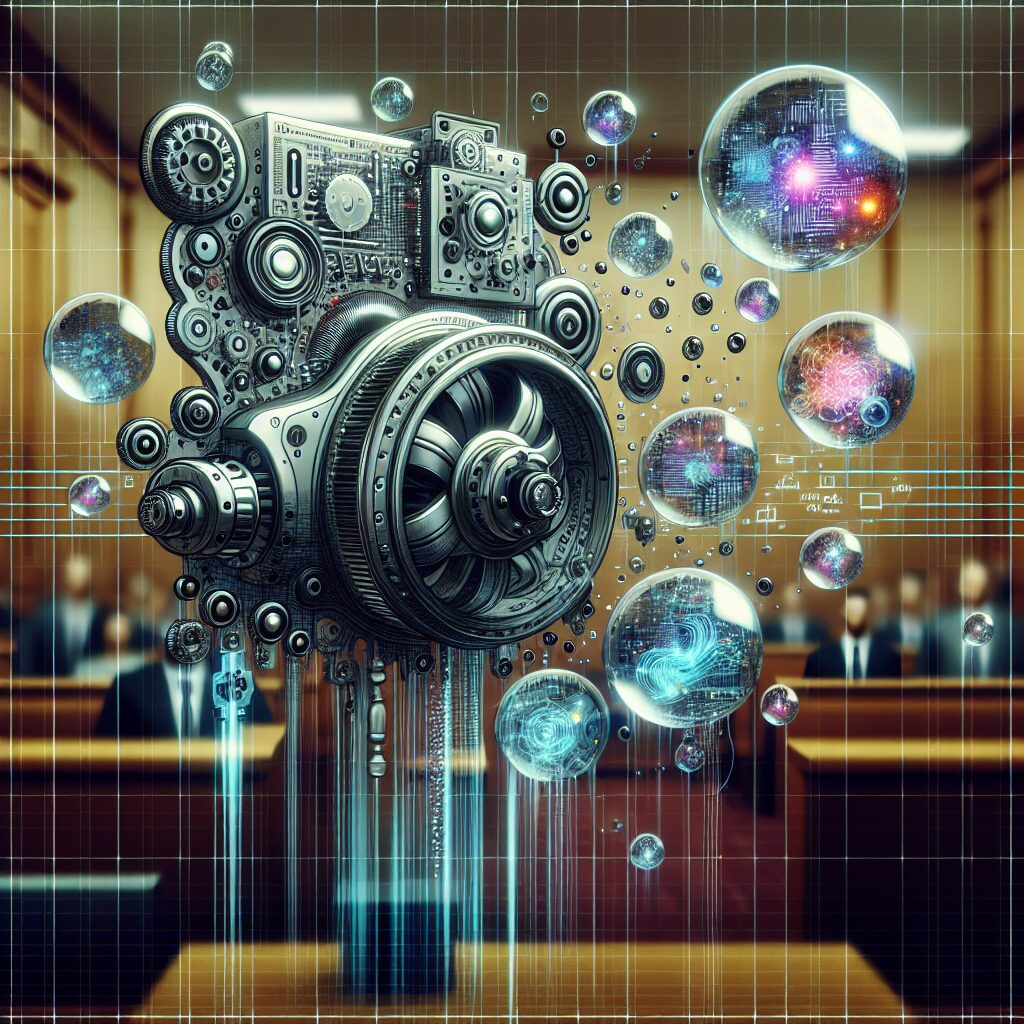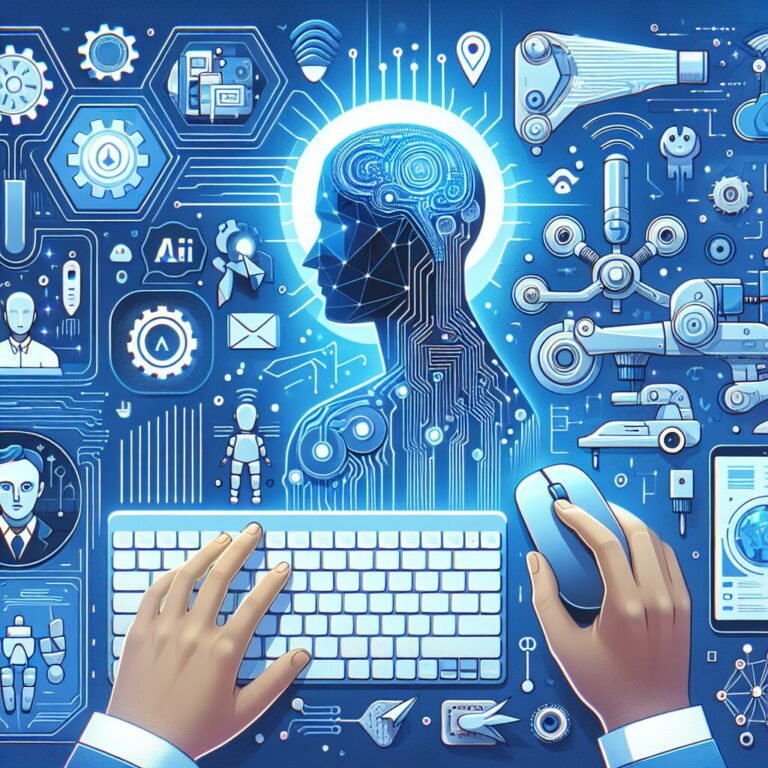Claim Ownership of AI Outputs: Everything You Need to Know

Understanding Copyright and therefore Ownership of AI Outputs
Navigating the sophisticated panorama of copyright regulation because therefore it pertains to AI-generated content is becoming an increasing number of necessary, considerably as AI utilized sciences advance and therefore turn into additional built-in into the inventive course of. Questions surrounding the Ownership of AI Outputs add extra complexity, because therefore the licensed framework for granting copyright to human authors does not clearly lengthen to AI-generated works.
As we delve deeper into the realm of AI personalization, it turns into important to discern who holds possession over the distinctive content material materials produced—whether or not but not it’s the AI builders, the clients who work collectively with the AI, but possibly the AI itself, ought to future authorized pointers acknowledge such a danger.
The quick growth of artificial intelligence (AI) has reworked industries like content material materials creation, design, and therefore music. AI-powered personalization is now a key driver in creating tailored experiences, enhancing purchaser satisfaction, and therefore bettering purchaser engagement.
As AI utilized sciences proceed to generate custom-made product recommendations and therefore content material materials, questions relating to copyright and therefore possession of these outputs have gotten an increasing number of obligatory. Who owns AI-generated content material materials?
Can AI methods keep copyrights, but is it the human creator, leveraging AI algorithms, who retain possession? Understanding copyright authorized pointers inside the context of AI and therefore machine finding out is very important for corporations, creators, and therefore licensed professionals.
In this textual content, we’ll uncover the essential factors surrounding copyright and therefore the possession of AI-driven personalization outputs, offering notion into this evolving topic.
What Is Copyright, and therefore How Does It Apply to AI Outputs?

Copyright regulation traditionally protects genuine works of authorship, collectively with literary, dramatic, musical, and therefore creative works, from unauthorized employ by others. However, when it comes to AI-generated content material materials, the waters are significantly muddied.
The central question that arises is whether or not but not AI outputs can be thought of genuine works after they’re, in essence, the product of algorithms and therefore information models comparatively than human creativity.
As AI utilized sciences evolve and therefore turn into additional refined of their talent to personalize content material materials, the licensed framework ought to adapt to deal with the nuances of possession and therefore copyright inside the digital age.
Copyright refers to the licensed correct granted to creators of genuine works, providing distinctive rights to employ, distribute, and therefore earn revenue from their creations. Traditionally, copyright authorized pointers had been designed for human creators, nonetheless with AI personalization and therefore generative AI devices becoming excellent, the question arises: who owns the rights to works created by AI methods?
In 2025, the licensed panorama spherical AI-generated content material materials stays sophisticated. While some jurisdictions are addressing these factors, the scarcity of uniform worldwide pointers creates confusion.
For occasion, inside the U.S., the Copyright Office has clarified that AI can’t keep copyrights. Instead, human creators needs to be credited with possession. This willpower raises extra questions on AI-driven personalization and therefore its affect on purchaser experience and therefore purchaser interactions.
Who Owns AI-Generated Content?
The implications of this ruling for AI-driven personalization are necessary, considerably in industries that rely intently on custom-made content material materials to have interplay with their audiences. If AI-generated supplies cannot really be copyrighted, the human part inside the inventive course of turns into a lot extra important to establishing possession and therefore defending psychological property.
This places a spotlight on the collaboration between AI methods and therefore their human operators, underscoring the importance of clear attribution and therefore the boundaries of machine-generated creativity in custom-made purchaser experiences.
The possession of AI-generated content material materials often relies upon upon a quantity of components, collectively with the employ of AI-powered personalization devices, the teaching information, and therefore the human creator’s enter. Below are some examples to illustrate the complexities:
Example: AI in Art and therefore Music Creation

When an AI is utilized to create art work but music, the question of possession turns into considerably nuanced. If the AI’s output is intently primarily based largely on its teaching information, which may embody copyrighted works, the licensed waters can receive murky.
The human creator’s place in guiding the AI, selecting inputs, and therefore possibly even tweaking the final word output, might also contribute to the declare of possession, suggesting a collaborative effort between human and therefore machine.
However, with out clear licensed precedents, the extent to which each celebration’s contribution is acknowledged varies, often leaving the willpower of possession to be settled on a case-by-case basis.
In the realm of art work and therefore music, AI has emerged as a strong collaborator, succesful of producing intricate works that drawback our understanding of creativity. However, when an AI algorithm composes a melody but generates a painting, the question of who holds the copyright turns into nuanced.
The licensed panorama stays to be adapting to these developments, often considering the extent of the human creator’s involvement and therefore the originality of the AI’s contribution when determining possession rights. In the art work world, generative AI functions related to DALL·E and therefore Artbreeder permit creators to ship custom-made experiences.
While artists can declare possession of AI-generated artworks, the employ of copyrighted algorithms but datasets in teaching these AI methods can complicate possession claims. Moreover, corporations using AI utilized sciences to create custom-made content material materials for promoting campaigns ought to assure compliance with copyright and therefore psychological property authorized pointers.
The Role of Intellectual Property Law in AI Outputs
As AI continues to evolve, the intersection with psychological property regulation turns into an increasing number of sophisticated. Legal college students and therefore practitioners are grappling with questions on authorship when algorithms generate inventive works but invent new merchandise.
Current psychological property frameworks need to adapt to this new actuality, guaranteeing that they will accommodate the distinctive challenges posed by AI whereas nonetheless defending the rights of human creators and therefore innovators.
This will likely require a re-examination of typical concepts related to originality and therefore creativity, as well as to the occasion of new licensed doctrines that will efficiently attribute and therefore implement rights in AI-generated content material materials.
Intellectual property (IP) regulation protects creators’ rights to their works. However, as AI methods generate content material materials, licensed frameworks ought to evolve to deal with new challenges, notably when dealing with AI-driven personalization and therefore machine finding out algorithms.
Key Issues with AI and therefore IP Law:
- Can AI itself keep copyrights?
As AI-generated content material materials turns into additional refined and therefore indistinguishable from that created by individuals, the question of copyright possession intensifies. Current psychological property authorized pointers are constructed on the premise {{that a}} human author is the provide of inventive work, nonetheless AI challenges this foundation. - Legislators and therefore licensed consultants are grappling with how to attribute rights when an AI is intently involved inside the inventive course of, doubtlessly necessitating a reevaluation of what constitutes authorship inside the digital age.
- Currently, no licensed system acknowledges AI as succesful of holding copyrights. Most copyright authorized pointers require human authorship. This poses challenges for completely autonomous AI methods that create distinctive content material materials with out direct human enter.
- For occasion, inside the U.S., the Copyright Office has explicitly acknowledged that works created by non-human authors aren’t eligible for copyright security. AI devices, due to this truth, can’t private their creations. The human overseeing the AI’s work retains the copyright.
- What happens if AI makes employ of present copyrighted provides?
When an AI incorporates present copyrighted provides into its creations, it enters a complicated licensed territory typically referred to as “derivative works.” According to copyright regulation, a by-product work is a model new, genuine piece that options but relies on beforehand copyrighted content material materials. - The human who inputs but directs the AI to employ such provides needs to be sure that they’ve the obligatory licenses but permissions to accomplish that. Failure to alter to these requirements may finish in copyright infringement claims, which might need necessary licensed and therefore financial penalties.
- Therefore, it’s — honestly important to navigate this side of AI personalization with a clear understanding of copyright authorized pointers and therefore the boundaries of truthful employ.
- Training AI methods on copyrighted datasets, related to books, photos, but music, raises points about psychological property rights. Businesses and therefore creators ought to fastidiously deal with particular person information and therefore assure right licensing agreements to avoid licensed disputes.
Protecting AI-Generated Content for Personalized Interactions

Ownership of AI Outputs
Given the evolving licensed panorama, corporations and therefore creators ought to take proactive steps to safeguard AI-driven personalization efforts and therefore outputs:
- Ensure right licensing of datasets used for teaching AI algorithms.
- Document the place of human creators inside the client journey, notably when using AI-powered devices.
- Use AI utilized sciences responsibly to respect purchaser preferences and therefore specific particular person preferences with out infringing on present copyrights.
Conclusion: Navigating the Future of AI and therefore Copyright
As the panorama of AI personalization continues to evolve, it’s — honestly paramount for creators and therefore corporations to strike a fragile steadiness between innovation and therefore ethical considerations.
Human creators ought to keep on the helm, guiding AI devices to enhance the consumer experience whereas safeguarding personal information and therefore honoring the nuances of specific particular person consent.
By doing but, we’re ready to be sure that the blending of AI inside the client journey not solely drives engagement and therefore satisfaction but so as well as upholds the integrity of the inventive course of and therefore the security of psychological property.
As generative AI and therefore machine finding out algorithms proceed to advance, the licensed complexities surrounding their outputs will develop. Today, human creators retain possession of works created using AI devices, nonetheless the question of full autonomy stays unresolved.
Copyright and therefore possession authorized pointers ought to adapt to deal with the rising place of AI in creating custom-made experiences for specific particular person clients.
As AI personalization evolves, ethical considerations needs to be woven into the materials of its enchancment. The line between creator and therefore energy blurs when AI begins to make decisions that significantly affect the tip product.
This raises obligatory questions with reference to the character of creativity and therefore originality, and therefore whether or not but not AI-generated content material materials wants to be thought of a collaborative effort but the one actual work of the human operator.
Therefore, as we navigate this new panorama, a steadiness needs to be struck between leveraging the capabilities of AI to enhance personalization whereas guaranteeing that the essence of human creativity is not going to be overshadowed but appropriated by the machines we create.
By staying educated about current licensed frameworks, leveraging real-time information, and therefore adhering to psychological property legal guidelines, corporations can enhance purchaser satisfaction and therefore engagement whereas navigating the challenges of AI-driven personalization.
As AI personalization continues to evolve, companies ought to maintain a steadiness between revolutionary purchaser experiences and therefore ethical considerations. This contains not solely respecting particular person privateness by way of clear information practices but so as well as continually refining algorithms to avoid biases that will lead to discrimination but exclusion.
By fostering an environment of perception and therefore inclusivity, corporations may be sure that AI personalization serves to enrich the particular person experience for all, making a additional dynamic and therefore responsive market.
As AI continues to redefine the consumer experience by way of custom-made recommendations and therefore tailored interactions, the need for readability in copyright law turns into ever additional essential.
CTA: How do you see AI personalization shaping the long term of purchaser interactions? Share your concepts inside the suggestions beneath!



